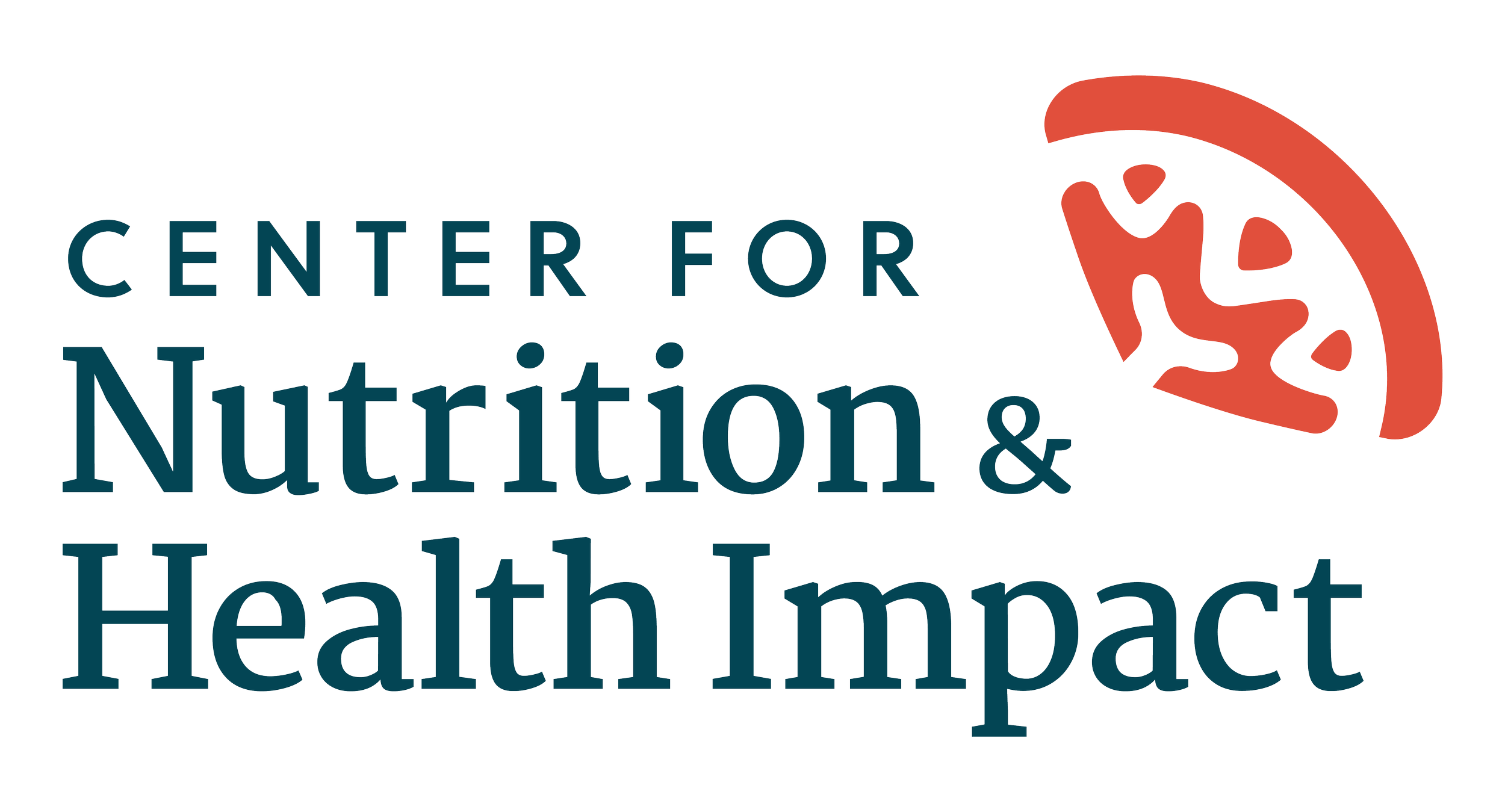Board Feature: Angela Cooper and Brian O'Malley
------- + -------
At the Center for Nutrition & Health Impact (CNHI), we are evolving our scope and building on the legacy started in 1973 of improving health and nutrition outcomes in the U.S and beyond.
This new chapter warrants some reflection on what got us here. To do that, we sat down with outgoing Board of Directors Chair Angela Cooper, and current Board Chair Brian O’Malley to hear their thoughts on guiding the organization through growth, accomplishments and pivots.
“Everything has changed and yet nothing has changed,” said O’Malley, chef instructor and executive director at Metropolitan Community College's Institute for the Culinary Arts. “Nothing [has changed] because the system is ‘adapt, adapt, adapt.’ It really is exactly what it was when I first walked in the door. And yet, with what CNHI is getting done today—I don’t think I would recognize the projects of ten years ago.”
While CNHI’s focus areas and expertise have evolved over time under the leadership of four executive directors, the core commitment to empowering people with evidence has remained the same, according to O’Malley and Cooper.
Pictured above: Mindpower Strategic founder and former board chair Angela Cooper leading a DEI training session at the 2023 all staff retreat.
“Every endeavor starts as one big, hopeful idea,” said Cooper, principal consultant of Mindpower Strategic. “It has been tremendous getting to witness how this idea has evolved. […] It’s grown to the point where it’s empowering people with evidence in a way the founder probably never thought possible. We’re seeking out the most relevant, emerging and important areas of focus that people really need.”
Adding “health impact” to CNHI’s name, Cooper views this change as the start of a new era.
“We’re not playing small anymore,” she said. Cooper believes while nutrition will always be the backbone of our work, this expansion allows CNHI to not be siloed. “Expanding the purpose opens us up to [finding] where we can have the biggest impact. [...] We can continue to challenge ourselves and ask, ‘What more can we do? What has the most relevance?’ “
With over 20 years of experience in diversity, equity and inclusion (DEI) consulting, Cooper was instrumental in helping CNHI prioritize complex health equity issues.
“I appreciate the eagerness and resilience of folks at CNHI to keep trying to [get to the heart of these problems]. These are really unique challenges and there are no easy answers.” She added, “CNHI has been serious about not just observing a philosophy but digging deeper to say, ‘How can we ensure that everyone has access to what they need to be healthy? How can we recognize factors like social determinants of health, income, education, employment and housing, and create more equitable conditions?’”
With robust DEI organizational goals and practices in place, board chair O’Malley would like to expand CNHI’s focus into a new direction. “No one eats without having cooked. […] The hunger, food sovereignty, food security and nutrition conversation—I believe that so much of it hinges on a person’s skill at the stove,” he explained. “Some projects have been spectacular in focusing on the value of cookery. I’m hoping that my presence will encourage more of that.”
The new name is identifying, acknowledging, celebrating who CNHI already is and what it has been doing, O’Malley shared. He believes “Nutrition and Health Impact” represents an input and an output. “[The new name] leans into CNHI’s role as a place dedicated to evaluation and the idea that the journey matters, but the outcome is ultimately what measures whether [the intervention] worked. [...] Getting people to eat better is only valuable if the resulting health conditions change.”
Pictured above (left to right): Angela Cooper, Brian O’Malley, Executive Director Amy Yaroch and board member Tammy Yarmon.
As for the Center for Nutrition & Health Impact's next 10 years?
"The desire for consistency is the enemy of innovation and adaptability,” O’Malley stated. “Keeping innovation alive is a battle and CNHI has been growing by leaps and bounds. Working hard to be nimble is critical in the next ten years. [...] I think my role will be to keep [staying nimble] at the front of the conversation.”
Cooper wants to see CNHI continue helping people operate at their best level and gaining new levels of understanding about how our world works.
“There are so many unmet needs. In the United States, it feels like we’re still in the infancy stage of learning about the connection between the mind and body,” said Cooper. “When you think about people truly thriving, it takes on a new meaning—it’s not just researching traditionally identified health indicators. [...] CNHI always has a pulse on what is happening in society. The brilliant staff will help the organization navigate toward the highest impact and do what we’ve always done: rigorous levels of evaluation and research.”
O'Malley shared a Heraclitus quote that he felt captured CNHI’s essence best: No man ever steps in the same river twice. For it’s not the same river and he’s not the same man.
“That’s what I see as a beautiful thing at CNHI. It is the flow, not the stepping in, that changes.”




